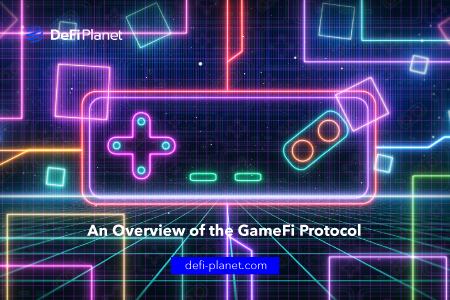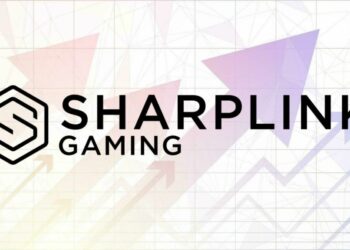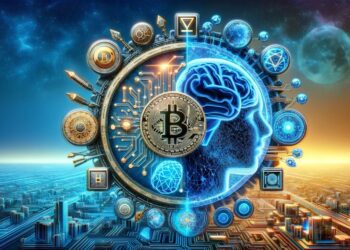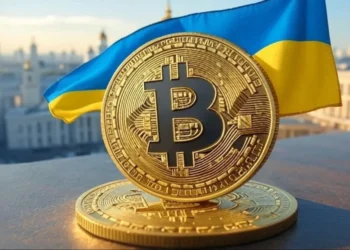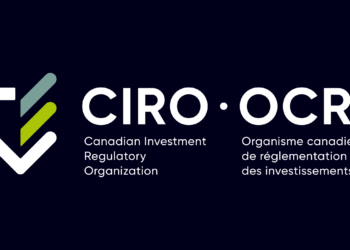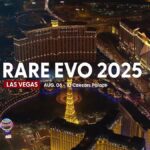GameFi is the acronym for Game and Finance, and it has evolved to include remarkable functionalities that allow users to earn while playing games. This ecosystem is focused on integrating financial architecture into games. Users on a Play-to-Earn (P2E) gaming platform can earn returns from participating in different gameplay activities.
These rewards may come in the form of NFTs or cryptocurrencies that can be traded on an NFT marketplace or crypto exchange, respectively.
Some GameFi platforms have created a structure to allow users to stake their in-game assets or NFTs to earn recurring rewards.
This article explores a GameFi platform called the GameFi protocol, what to expect when utilizing it, and its use cases. It should be noted that this is not an endorsement of the GameFi Protocol, and it is crucial to conduct due diligence before using any blockchain gaming platform.
What is GameFi?
GameFi is a large ecosystem that provides financial opportunities in gaming. It is the bridge between decentralized finance and gaming features.
Some GameFi platforms allow users to earn returns while navigating through games and are classified as Play-to-Earn (P2E) gaming platforms. Here, players participate in different activities in a game, enjoy the gameplay, and earn in the process.
A GameFi ecosystem may come in the form of a gaming guild. Crypto gaming guilds are platforms that allow both new and experienced gamers to interact with one another. Usually, this type of gaming guild supports new gamers with scholarships, tutorials, and much more for several P2E games. An example is Yield Guild Games (YGG).
Many of these platforms provide the initial minimum requirements for gamers in various NFT gaming ecosystems, such as Axies, and strategies to win in the game. Typically, gaming guilds offer community interaction, scholarships, earning opportunities, and much more.
Sometimes, a GameFi platform may allow users to stake their NFTs, act as mining protocols, possess lending functionalities, and much more. GameFi has evolved past the stage of only earning returns while playing games.
What is the GameFi Protocol?
The GameFi Protocol presents itself as the first-ever GameFi mining pool protocol that intends to promote Free-to-Play-to-Earn (F2P2E) features. It is a GameFi aggregation protocol that pools different types of GameFi ecosystems and trading functionalities together. In this protocol, users can access Free-to-Play-to-Earn (F2P2E) games.
As a GameFi aggregation platform, GFP has a feature called GameList that details multiple gaming projects that have adopted the F2P2E concept.
Typically, Play-to-Earn (P2E) games request that players purchase minimum requirements, which may be NFTs or cryptocurrencies. Usually, these minimum requirements are not affordable for average gamers. This is why crypto gaming guilds were created.
Though players have access to earning opportunities when they navigate through P2E games, they are required to invest an initial outlay, which may not be outrageously expensive for the average gamer.
On the other hand, Free-to-Play-to-Earn (F2P2E) games are free to play. All a user needs to do is download the game, start playing, and earn money. The barrier to entry in this type of game is relatively low compared to its P2E counterparts.
With its GameList functionality, the GameFi Protocol acts as an aggregation protocol for this category of crypto games.
The GameFi Protocol (GFP) is operated by a Decentralized Autonomous Organization (DAO), and its governance token is GFI. Users holding the GFI token have the governance right to make decisions in the ecosystem. The GFP-DAO controls the operations of the GameFi Protocol, and voting sessions are held regularly to decide crucial matters.
GameFi Protocol: Different Features
GameFi Protocol has different features that work together to attain its purposes, such as GameList, GNFT, and GDAO.
GameList
GameList is one of the crucial elements in the GameFi Protocol, and it is designed to act as a hub for F2P2E games. Users can access various gaming platforms that allow them to have intense fun as they navigate the terrain while earning. GameFi teams are incentivized to launch their projects using this feature.
For gaming developers interested in launching their functionalities, they can opt for the GameList, as it seems to have a community of gamers that may explore their projects. Usually, only GameFi projects “with high playability and reasonable tokenomics” are allowed on GameList. Before any project is allowed on this feature, it has to be voted in by the DAO. This is to ensure that only high-quality games are available in the ecosystem.
GDAO
GDAO is the Decentralized Autonomous Organization that controls the operations of the GameFi Protocol. A Decentralized Autonomous Organization (DAO) is an organization built on the blockchain that aims to address the principal-agent dilemma.
By virtue of being a DAO, GDAO is controlled by the holders of the native token, GFI. This means that before anyone can participate in a voting session, they have to hold the native token. Usually, the option with the highest vote is chosen.
The GameFi Protocol is run as a DAO, meaning that the projects that make up the GameList have to be voted in by community members. One vote is given to the holder of 1 GFI. GDAO determines crucial aspects of the DAO, such as partnerships, gaming listings, new features, etc.
As a member of the DAO, users can decide on the following areas:
Voting on Games
The DAO votes on any game before it is added to the GameList during a voting session. This ensures that the ecosystem only supports high-quality games.
Launching IGO games in GLaunch
Before a gaming startup is permitted to use GLaunch’s crowdfunding functionality, community members have to vote on it. This ensures that only innovative projects that can improve the value of the GameFi Protocol and community members are allowed into the ecosystem.
Selling GNFT gaming NFTs
GameFi Protocol DAO members can decide on the types of gaming NFTs allowed in the ecosystem.
Changes to GFI tokenomics
Sometimes, the tokenomics may need to be altered to reflect crucial changes, and before this can happen, the DAO must hold a voting session.
Modification of rules
The GameFi Protocol may need to modify its rules and architecture as the ecosystem evolves to reflect crucial changes. Before this can happen, the DAO must vote. Changes to the protocol’s architecture and structure can only be made following a voting session.
GNFT
The GNFT feature is the NFT branch of the GameFi Protocol. It acts as an NFT marketplace, allowing users to buy, sell, and trade different types of in-game assets that come in the form of NFTs. In-game assets may be land, avatars, props, equipment, and other types of collectibles.
In addition to operating as an NFT marketplace, The GNFT feature allows users to engage in NFT stake mining, NFT transaction mining, and NFT synthetic asset mining. Users can earn by staking their in-game assets on the GNFT functionality.
GLaunch
The GameFi Protocol caters to users who want to invest in gaming startups before they go mainstream. Holders of idle funds or tokens can invest in new GameFi platforms through GLaunch, an arm of the GFP. GLaunch acts as a crowdfunding platform, acting as a bridge between innovative projects and potential investors.
Only vetted projects are allowed to use this feature to organize their Initial Game Offering (IGO) event to reduce the risks involved. Community members are expected to hold a certain amount of the native token, GFI, for a period before they are permitted to use the GLaunch feature.
Developer Alliance
The GameFi Protocol includes a Developer Alliance feature that incentivizes developers to participate in developing the ecosystem. Developers can contribute to the Protocol’s codebase by adding new features, searching for bugs, and performing other tasks required of a code contributor. The Alliance is also filled with bug diggers that try to find bugs that can affect the functionalities of the gaming ecosystem.
Community members can choose to join the Developer Alliance to develop game guilds for the many GameFi platforms that use this protocol. There are also the GameFi explorers that analyze the different features and projects built on the GameFi Protocol.
In Conclusion,
- GameFi Protocol is the first-ever GameFi mining pool protocol, intending to promote Free-to-Play-to-Earn (F2P2E) features.
- The GameFi Protocol (GFP) is run by a Decentralized Autonomous Organization (DAO), and the GFI token serves as its governance token.
- GameList is a critical component of GameFi Protocol that serves as a hub for F2P2E games.
- The GNFT feature is the NFT branch of the GameFi Protocol.
- GameFi Protocol has the Developer Alliance feature that incentivizes developers to participate in developing the ecosystem.
If you would like to read more articles like this, visit DeFi Planet and follow us on Twitter, LinkedIn, Facebook, and Instagram.
“Take control of your crypto portfolio with MARKETS PRO, DeFi Planet’s suite of analytics tools”

